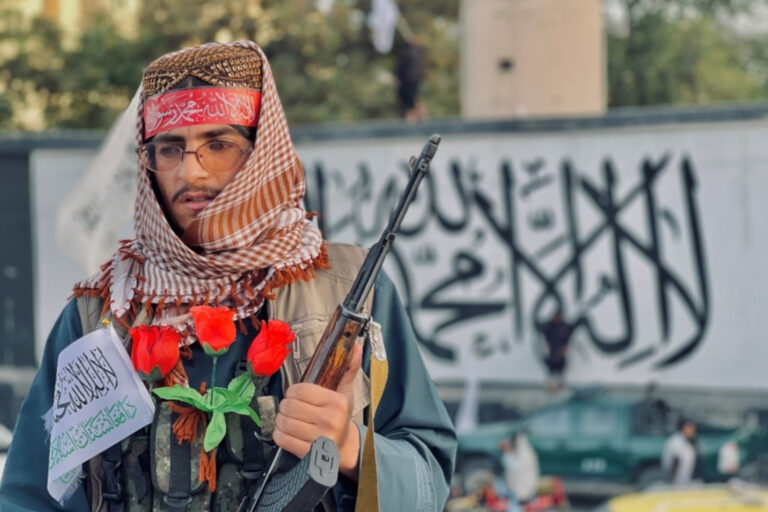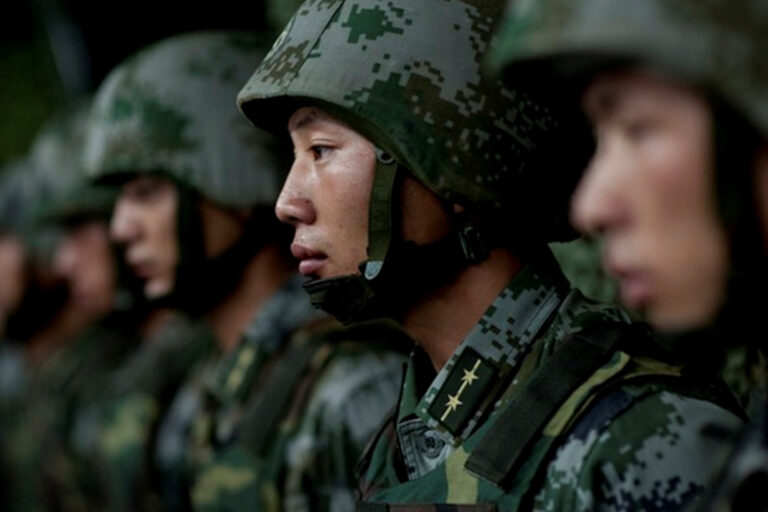Allison M. Feikes
This two part series will look at Muslims in France to provide insight into the alienation, victimization, and frustration that is radicalizing some French Muslims to committing the recent terrorist attacks in France. Read Part I here.
Part II: Political Approaches Towards French Muslims
Political Approaches Towards French Muslims
France’s original approach to its Muslim population was to let foreign governments organize resources and needs of French Muslims in place of the government. Diplomatic representatives from Algeria, Morocco, Turkey, Saudi Arabia, and Tunisia retained a privileged status as spokesperson for Muslims in Europe. These outside actors provided funding for mosques, religious education, and other Muslim needs within Europe. However, France learned that this approach was impeding the ability for Muslims to assimilate. After 1989, French policy focused on providing services to its Muslims directly.[1]
France has had multiple political approaches to better assimilate French Muslims. These approaches have not been to accommodate French Muslims, but to control them. France wanted to create an Islam of France rather than an Islam in France. In January 1995, the Paris Mosque published the Charter of Muslim Faith in France, designed as a framework for the Islamic organization and practice in France. However, by naming the Paris Mosque the official spokesman for the community, Muslim leaders believed this was France’s way to control the population rather than help it.[2] This trend of control continued as the High Council of Integration for Muslims in 2000 contemplated requiring Imams to pledge oaths to the state, an act reminiscent of Catholic clergy in the 1790s that ultimately failed.[3] In 2002, Nicolas Sarkozy, founded the French Council of the Muslim Faith (CFCM). With pro-secular and pro-Islamic figures on the CFCM, Sarkozy attempted to create official coordinators to erect mosques, train Imams, appoint Muslim chaplains, regulate lamb slaughters for Aid al-Adha, organize the Hajj, and certify halal meat. Their main motive was, once again, to take Islam under state control and assimilate it.[4]
The French government’s repeated mistake is grouping all Muslims together. In reality there are a variety of different dichotomies within the French Muslim community ranging from nationality to specific religious practices. Just as in Christianity where the Greek Orthodox and Roman Catholic needs are vastly different, Islam varies widely as well. The failure to recognize this diversity in the French Muslim community has prevented French policies from succeeding. Additionally, the aim of French policy has been to control Muslims rather than help them. This control clashes with laïcité. The 1905 law in which laïcité was solidified requires the French government to stay out of the internal affairs of religious organizations. Laïcité does not include control, making these policies un-French and unfair for French Muslims.[5] This clash with laïcité sends the political message to French Muslims that laïcité can only be used against Muslims, but it does not work to protect their rights.
Moreover, France’s Muslim population has been denied key resources in order to practice their religion by the government. Mosques are a good example, as Muslims in France say they need more, but bureaucrats put obstacles in their way, leading Muslims to transform stores, houses, and apartments into prayer rooms.[6] Sarkozy commissioned a review in order to examine the 1905 laïcité law to try ease restrictions on state funds to build more mosques; however, this move was largely political to try and gain Muslim votes.[7] In the end, Sarkozy proved to be an inconsistent ally to the Muslim cause with rhetoric that often was disconnected from his actions.
One of the most significant French discriminatory policies towards Muslims is the ban of the headscarf. Controversy over the headscarf first appeared in France in October 1989. However, it was not until early 2004 that the French government made it illegal to adorn religious symbols in school, resulting in a ban of the headscarf. This policy was created as the French government wanted to ensure gender equality and the sanctity of public schools. The French government also made this decision without consulting the Islamic community, but it did consult a special commission of secularists. This law affected a little over one thousand girls.[8] Considering the extremely small number of individuals it affected, the law is more of a symbolic gesture to French Muslims that they must assimilate. French Muslims felt their rights were taken away and the disparaging message that France did not care about them as a unique people.
Another problem in creating French policy is the lack of civic engagement by French Muslims. A staggering 23 percent of French Muslims are not registered to vote compared to only 7 percent of the population at large. Only 2 out of 908 members of French parliament are Muslim. Many French political parties have promised to set up a certain number of French Muslims as candidates on their own volition; however, most of these candidates were positioned in districts where the party was expected to lose. This way, the party gains support for being diverse, but there is no actual diversity within their elected politicians.[9] This lack of engagement could lead the Muslim population of France to feel underrepresented in the French government.
Unfortunately, policies in place to help Muslims who face discrimination or aimed to protect their rights have been lackluster. For example the Haute Atorite de Lutte contre les Discriminations et pour l’Egalite, a government agency set up in 2005 to punish employers who show bias in the workplace, has sent only a few dozen complaints to court. Meanwhile, France’s minister of equal opportunity has limited resources and a lack of clarity on its exact job description.[10] Policies that work to attack root causes of frustration, alienation, and victimization are without clear vision and poor in quality.
Consequences of Inaction
In October 2005, French police, investigating a break in, chased a group of innocent young resident’s of the Paris banlieues; during the chase, two died in an electric fence. Following these deaths, a series of riots erupted in these urban areas that included car and building fires. The urban riots of November 2005 were not due to religious convictions, but were protests against the lack of upward mobility French Muslims face. Many whites, blacks, and non-Arabs took part in these protests, as they were part of the banileues. Riots occurred due to economic stagnation and discrimination against the community. The longer these people are oppressed, the more likely civil unrest will occur. A large unemployed population in France means that France is missing out on significant labor that could be contributing to its economy.
The socioeconomic stagnation of Muslims leads to the criminalization of the population. The Ecole des Hautes Etudes en Sciences Sociales, has found that Muslims, although accounting for a small minority of the population, may account for more than 50 percent of France’s prisoners.[11] The filling of prisons of Muslims is not due to race, but due to the low socioeconomic place in society. Research has demonstrated that criminal activity directly correlates to economic opportunity.[12] This situation can be compared to the domination of inner city crimes committed by African Americans in the United States, once again due to economic immobility.[13] As long as banileaus exist, they encourage crime. They need to be dismantled in a way that creates mobility for those living within them.
Sometimes, socioeconomic disparity leads to radicalization as, “the young men, marooned in ghettos, too often drop out of school, join gangs, take drugs, [and] engage in violent crime. The government, failing to ameliorate conditions for them, has left them as a problem for the police. Muslim extremists have plowed the field of their discontent.”[14] Perhaps the best example of this phenomenon is Khaled Kelkal.
Khaled Kelkal was a well-integrated French Muslim who was brought to France as a toddler in 1973. Kelkal eventually became a member of the Algerian Armed Islamic Group (GIA), an organization that worked against the French government in protest of its support for the Algerian military. He was the main suspect in the bombings of the Paris subway in 1995. German researcher, Dietmar Loch conducted an interview with Kelkal, years before he became one of France’s most-wanted criminals, to study North African youth in Vaulx-en-Velin, Kelkal’s hometown.
Kelkal’s narrative is similar to many oppressed French Muslim in that, he faced a society that did not consider integration enough in becoming French. Instead, Kelkal felt rejected as he could not assimilate and forget his culture. Although Kelkal was accepted into an elite magnet school, his classmates constantly reminded him that he was Arab and different; he felt pressured to eat pork and keep religion (or more likely culture as Kelkal was not devoutly Muslim at this time) out of his life at school. Eventually the discrimination encouraged truancy that led to petty crime that was widespread in the banileau in which he lived. While in prison for car theft, militant Muslim cellmates introduced Kelkal to fundamental and radical Islam. It was in prison that Kelkal learned Arabic and the Koran. In his 1992 interview Kelkal stated, “J’ai pas fait des etudes pour charger des camions (I didn’t study just to end up loading trucks).”[15] This indicates Kelkal was frustrated with the employment opportunities available to even educated Muslims living in France. In his interview, Kelkal repeatedly cites discriminatory acts against him.[16] Discrimination and economic stagnation aided in creating this terrorist.
Beyond the GIA, other terrorist organizations in the world have anti-French ideology due to France’s colonial history with Algeria. The Salafist Group for Preaching and Combat (GSPC) is often called the Al-Qaeda in the Islamic Maghreb (AQIM). Today, there is a convergence of al-Qaeda and Da’esh; although these two Islamic jihadists compete over resources and are fighting a war with each other, the same types of people with identical histories are members of the respective organizations. Two of the strongest terrorist organizations in the world have an anti-French mentality. Furthermore, while Muslims in the Middle East create terrorist organizations as their only outlet to create change in the region, Muslims in Europe are closer linked to extreme radicalization.
Importantly, not all who are alienated, victimized, and frustrated become radicals. Not all radicals become terrorists. However, the formula for terrorism cannot be ignored considering the devastation France has experienced in the last few decades. France alienates, victimizes, and frustrates its Muslim population through social, political, and economic means. This has led to terrorism. In order to fight terrorism within its borders, France must change.
Conclusion
There are a variety of ways civil society, the French government, and international actors such as the European Union, as these problems extend beyond French borders, could work to alleviate the alienation, victimization, and frustration of French Muslims. There should be a redefinition of laïcité that better works to not oppress minorities in France. Better education on the Islamic population in France would work to mitigate the misunderstanding, mistrust, and discrimination against Muslims. This is not education of Islamic dogma, but of the people who identify as part of this religion or culture. There should be a reversal of xenophobic rhetoric by French politicians; and these politicians should be limited in their power to further alienate the Muslim population. Anti-discriminatory policies should be put in place and better enforced to protect those of all nationalities gain employment. Furthermore, employment and educational programs should be brought to the banileaus in order to end the socio-economic stagnation that plagues so many French Muslims. Such programs can range from bussing programs to affirmative or positive action (successfully implemented in the U.S., UK, and India), which would also work to create more diverse and anti-discriminatory society. Discriminatory and controlling policies should no longer characterize the Muslim agenda in French politics. Muslims should be more civically engaged, which can be done through campaigns and crusades to up voter registration in the population. Finally, France needs to work more to right its wrongs in Algeria, defusing the tensions that still exist from a complicated history of colonization.
There are a variety of implications for future research. Foremost, the problems associated with Muslims in France need to be approached through a constructionist lens rather than essentialist. It is less important to study the dogma of Islam, but policymakers and scholars should look at the social, political, economic, and historical trends of these people. This paper attempts to name some of the consequences of victimization, frustration, and alienation of a population, but the formula for radicals and terrorists still remains ambiguous. How do some people become Khaled Kelkal while others become Mahatma Gandhi? This enigma needs to be studied in order to create real progress in the war against terror.
In the end, it is not the radicalization of Islam that is the problem in France. Instead, it is the radicalization of an oppressed group of people who happen to be Muslim. Religion has always been a banner to galvanize people in a political movement; however, Islam is not to blame for terrorist attacks of the past two decades in France. Islam is not a fundamentally radical religion. Instead, French social, economic, political, and historical treatment of Muslims has led to the oppression causing a variety of issues, including the most extreme result: France being the target for terrorist attacks. In order to protect France, foreign policy changes are not enough to create security. Domestic policy spanning across diverse portfolios together is the only project that can create a better France. There needs to be an end to the victimization, frustration, and alienation of French Muslims.
Allison Feikes is a Masters student at the Johns Hopkins School of Advanced International Studies, concentrating in European and Eurasian Studies and International Economics. She has completed internships at the Turkish Heritage Organization, The SETA Foundation, and the U.S. Mission to the EU. Prior to coming to SAIS, she was a Fulbright Scholar in Canakkale, Turkey. Feikes received her BA in Political Science and International Affairs from the Honors College at Western Kentucky University.
[1] Jonathon Laurence, “Integrating Islam: Political and Religious Challenges in Contemporary France.” Brookings Institution Press, (September 26, 2006): 135-313.
[2] Viorst, “The Muslims of France.”
[3] Oliver Roy, Secularism Confronts Islam (New York: Columbia University Press, 2007), 27.
[4] Ahmet T. Kuru,“Secularism, State Policies, and Muslims in Europe: Analyzing French Exceptionalism,” Comparative Politics 41, no. 1 (2008): 1–19.
[5] Roy, Secularism Confronts Islam.
[6] Viorst, “The Muslims of France.”
[7] Giry, “France and Its Muslims.”
[8] Ibid.
[9] Ibid.
[10] Ibid.
[11] Ibid.
[12] Lawrence E. Cohen and Marcus Felson, “Social Change and Crime Rate Trends: A Routine Activity Approach,” American Sociological Review, 1979, no. 44 (August): 588-608.
[13] Jeremy Travis, Bruce Western, and Steve Redburn, The Growth of Incarceration in the United States (Washington: The National Academies Press, 2014).
[14] Viorst, “The Muslims of France,” 89.
[15] Robert S. Lieken, Europe’s Angry Muslims:The Revolt of the Second Generation (New York: Oxford University Press, 2012), 3-16.
[16] Ibid.



